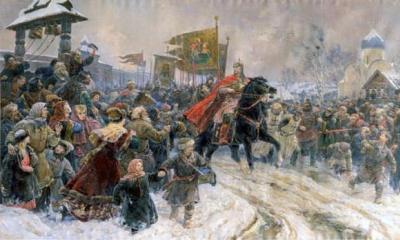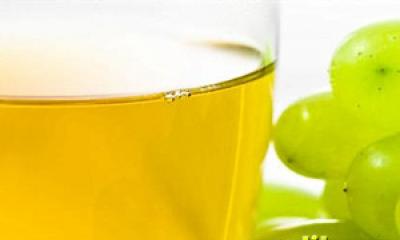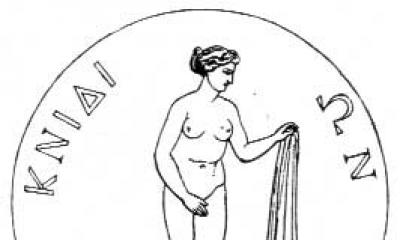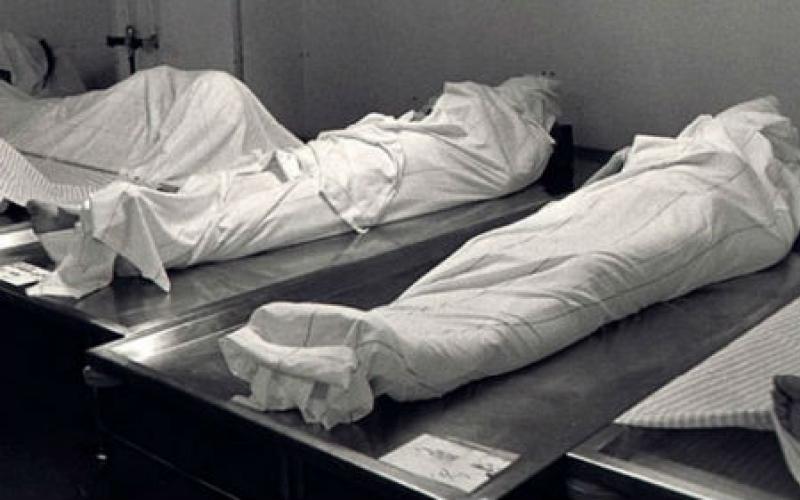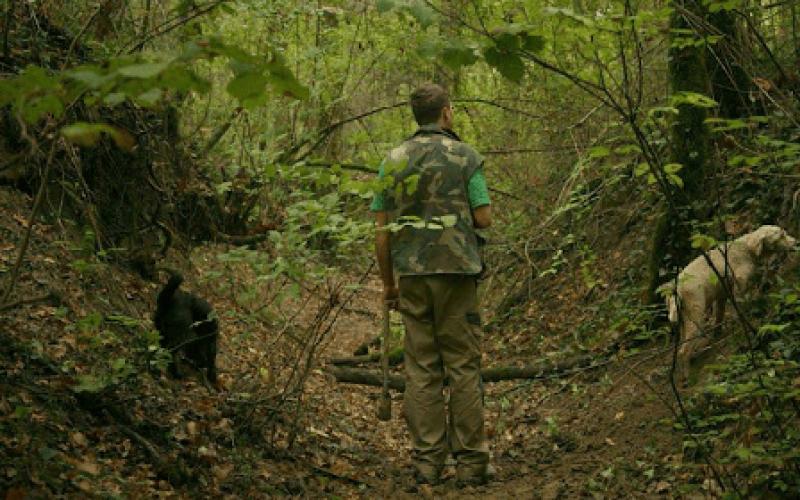Plural nouns- quantitative designation of nouns, which exceeds one unit of something. A distinctive feature of plural nouns is that they are not inflected.
This and other grammar topics in English can be discussed in a special topic of our forum.
Plural Formation of Nouns
General Rules for Plural Nouns
Most of the plural nouns in English language formed by adding the ending " -s" to a noun. For example:
You should know that nouns are only numbers ending in " s", "x", "z", "ch", "sh-es". For example:
Singular nouns ending in " y", in the plural have the ending " -ies". For example:
Exceptions to Plural Nouns
There are nouns in the English language, the plural of which is not formed according to the general rule, but rather has exceptions. Below is a table with such nouns:
| Singular | Plural |
|---|---|
| man - a man | m e n - men |
| woman - woman | wom e n - women |
| study - training | stud ies- training |
| child - child | children - children |
| wife - wife | wi weight- wives |
| tomato - tomato | tomato es- tomatoes |
| potato - potato | patato es- potatoes |
| life - life | li weight- life |
| elf - elf | el weight- elves |
| foot - foot | f ee t - feet |
| tooth - tooth | t ee th - teeth |
| person - person (personality) | people - people |
| leaf - leaf (of trees) | lea weight- leaves |
| mouse | m ice- mice |
| goose - goose | g ee se - geese |
| half - half | hal weight- halves |
| knife - knife | kni weight- knives |
| loaf - loaf (bread) | loa weight- loaves |
There are nouns that have the same form in both singular and plural. Below is a list of such nouns:
There are also nouns that always have plural form. A list of such nouns is given below:
- glasses
- news - news
- jeans - jeans
- trousers - trousers
- billiards - billion(s)
- darts - darts (game)
- linguistics - linguistics
- athletics - athletics
Conclusion
Dear readers, if there are any corrections, additions to the article or questions about the use of plural nouns in English, you can leave a message in a specially created discussion thread on our forum.
Other articles about English grammar
| English grammar | |
|---|---|
| General rules | Formation of sentences Articles Plural Nouns Prepositions List of irregular verbs Numerals Comparisons of adjectives Gerunds |
By numbers, mostly countable nouns change. Uncountable nouns, as a rule, are used only in the singular form:
sugar - sugar, love - love, friendship - friendship.
They are used in the plural only when the variety of species, concepts expressed by them is meant, or when they are used in another sense in which they are already countable. For example:
air - air, movement - movement (as a general concept), music - music, milk - milk, knowledge - knowledge, hair - hair (on a person's head).
BUT: air - aria, melody - "airs - arias, melodies, movement - movement (for example, political or in dance) -> movements - movements (the same), hair - hair -" hairs - hairs, etc.
The plural of nouns is usually formed by adding the ending -s to the singular form:
book - book -» books - books, day - day -> days - days, house - house -> houses - houses.
Reading the ending "-s":
after voiceless consonants - [s]: books
after voiced consonants and vowels - [z]: friends, days
after hissing and whistling (-es) - : boxes [‘boksiz]
Exception l. Nouns ending in the singular with letters o, s, ss, sh, ch, x(hissing and whistling, as they are called), in the plural they have an ending -es:
hero - hero ->heroes - heroes, kiss - kiss -> kisses - kisses, brush - brush-> brushes - brushes, bench - bench -> benches - benches, box - box -> boxes - boxes.
BUT: In words of foreign origin ending in o, in the plural, only the ending is added to the noun -s:
piano - grand piano -> pianos - grand pianos, photo - photography -» photos - photos.
Exception 2. Nouns ending in y with a preceding consonant have the y omitted and the ending added instead -ies, which reads [-iz]:
country [‘kAntri] - country -> countries - countries, city - city cities- cities, family - family families- families.
BUT: If there is a vowel before y, then the plural is formed according to the general rule, i.e. by adding the ending -s:
day - day - "days - days, boy - boy -" boys - boys.
3. Twelve nouns ending in -f or -fe, in the plural lose these letters. Instead of -f or -fe, the ending is added -ves. These are nouns:
wife - wife, life - life, knife - knife, wolf - wolf, self - essence, human appearance, calf - calf, shelf - shelf, leaf - leaf (plant), loaf - loaf (bread), thief - thief, half - half, sheaf - pack (of paper), etc.
For example: wife - wife - "wives - wives, knife - knife -> knives - knives, shelf - shelf -> shelves - shelves.
4. Some nouns form the plural by changing the root vowel:
man - man -> men - men, woman - woman - "women - women, foot - leg feet - legs, tooth - tooth -" teeth - teeth.
HO: child - child -> children - children.
5. For compound nouns, the plural is formed by adding the ending -s to the second word:
armchairs - armchairs, bookcases - bookcases.
BUT: If these words are combined by a preposition, then the first word is put in the plural: sisters-in-law- daughters-in-law.
Words borrowed from Greek or Latin are pluralized according to the rules of those languages:
appendix - application -» appendices - applications (to the book), crisis - crisis -> crises - crises, basis - base, bases - bases, radius - radius -> radii - radii.
Nouns used only in the singular
- Uncountable nouns (both real and abstract) are usually used only in the singular:
iron - iron, salt - salt, milk - milk, sugar - sugar, love - love.
- Nouns advice (advice, advice), information (message, information), progress (success, success), knowledge (knowledge) are used only in the singular.
He gave me some good advice. He gave me some good advice.
My coach was satisfied with my progress. My coach was pleased with my progress - Nouns news (news, news), money (money), fruit (fruits, fruits) are used in the singular. But, for example, to refer to different types of fruits, the plural is used - fruits.
What is the news? What's the news?
It's his money. This is his money.
Fruit is cheap in autumn. Fruit is cheap in autumn. - Among countable nouns, there are those that are used only (or mostly) in the singular form. These are the names of some animals, objects, etc.:
two sheep - two sheep, six fish - six fish, ten swine - ten pigs, five deer - five deer.
Countable nouns in English have 2 numbers - singular and plural. With a single number, as if everything is clear - we take a dictionary and look.
Plural formed with the suffix -s: suggestion - suggestion s(offer - offers), umbrella - umbrellas (umbrella - umbrellas).
In some words, for ease of pronunciation, a suffix is \u200b\u200badded (or, if you like, an ending) -es: box - box es(box - boxes), bush - bush es(bush - bushes). These are words that end in: -o, -ch, -s, -ss, -sh, -x (potato - potato es(potato - potatoes), fox - fox es(fox - foxes)). However, foreign words and abbreviations, which end in -o form the plural with a simple -s: piano - pianos (piano - piano-(s), i.e. also a piano, only there are already a lot of them), kilo - kilos (kilogram - kilograms).
For nouns ending in -f, -fe, in plural f changes to v and added es:
leaf - leaves = leaf - leaves
knife - knives = knife - knives
thief - thieves = thief - thieves
wife - wives = wife - wives
This is general rule plural formation of nouns ending in -f, -fe, but some rules have so many exceptions that it is sometimes difficult to determine where the rule is and where the exception is. For nouns ending in -oof, -ief, -ff, -rf, in the plural, most often just add a suffix -s. And here is the evidence:
proof - proofs = proof - proofs
hoof - hoofs = hoof - hooves
roof - roofs = roof - roofs
chief - chiefs = leader - leaders
grief - griefs = sadness - sorrows
brief - briefs = summary - summaries (there can be many translations here!)
cliff - cliffs = cliff - cliffs
skiff - skiffs = skiff - skiffs
whiff - whiffs = smoke - smokes
dwarf - dwarfs = dwarf - dwarfs
scarf - scarfs = scarf - scarves
turf - turfs = peat - peat (or peatlands?)
If nouns end in - y with a consonant before it, then in the plural - y changes to - i and the already well-known to us is added - es, or if you like, y changes to - ie and already added to them - s :
Count ry–countr ies(country - countries),
Du ty- dut ies(duty - duties).
In compound nouns usually the main element ends with -s:
Sister-in-law - sister s-in-law - (daughter-in-law - daughter-in-law)
Boy friend - boy friend s(guy - guys).
If none of the elements is a noun, the ending is added to the last word:
Merry-go-round - merry-go-round s(carousel - carousels).
There are a few more exceptions to remember:
foot - feet (foot - feet)
goose - geese (goose - geese)
louse - lice (louse - lice)
mouse - mice (mouse - mice)
man - men (man - men)
woman - women (woman - women, pay special attention to pronunciation)
person - people (person - people) (but, people can also mean - people, nation, then the plural will be peoples - peoples, nations)
child - children (child - children)
tooth - teeth (tooth - teeth) ox - oxen (bull - bulls)
In addition to this word of Greek and Latin origin form the plural against all the rules, and they sound pretty funny (it is advisable to remember them, because there are not so many of them):
Crisis - crises (crisis - crises)
Datum - data (data element - data)
Phenomenon - phenomena (phenomenon - phenomena)
Radius - radii (radius - radii)
If the first part of a compound noun contains the words man, woman, then both parts are plural: Man driver - men drivers (man driver - men drivers).
Countable and uncountable nouns
We can count countable nouns: six jobs (six jobs), many offers (many offers).
Uncountable (it's easy to guess) it is impossible to count, they do not form a plural. As in Russian, we will not use the words: music, blood, water or gold (music, blood, water, gold) in the plural.
Although, just like in Russian, depending on the context, options are possible: waters of the Atlantic - waters of Atlantic, mixing of blood - bloods mixing.
Some nouns can be either countable or uncountable. It is easy to determine this from the context: I bought a paper. - I bought a newspaper. Newspaper is a countable noun. We can count newspapers. And here is another example:
I bought some paper. - I bought paper. Paper is an uncountable noun. Paper is a “material” that we cannot count, it can only be counted in sheets, rolls, etc.
The following nouns have the same singular and plural form, i.e. they match:
fish (fish - fish (but: fishes - types of fish or fish),
deer (deer - deer),
sheep (sheep - sheep),
fruit (fruit - fruits (but: fruits - types of fruits),
aircraft (aircraft - aircraft), etc.
There are also nouns that are used only in the plural.:
clothes - clothes,
police - police
livestock
pyjamas - pajamas
pants
breeches - breeches
glasses
spectacles are glasses too
scissors - scissors
goods - goods, (often translated into Russian in the singular - goods)
holidays - holidays (there is also a single number - holiday, but this is already a holiday)
customs - customs
jeans - jeans
tights - pantyhose
shorts - shorts, etc. (almost like in Russian).
But since there are nouns that are used only in the plural, then of course there are those that are used only in the singular:
advice - advice,
furniture - furniture,
hair - hair,
information - information,
knowledge - knowledge,
money - money (and we have the opposite only in the plural),
trouble - problem
You can add a few more words to this list, which, despite the final -s are used in the singular: physics, mathematics, optics, phonetics, politics and the like.
Special words such as news - news, it is considered a plural noun (plural), but in a sentence it is used as a singular (singular). It is translated into Russian in the meaning of the plural or singular:
This was news to me. - That was news to me.
What's the news? - What's new? (or: What's the news?)
To "news" you can add a few more similar words in which the singular is no different from the plural (although, depending on the context, options are also possible):
means = means - means
barracks = barracks - barracks (but: barrack - barrack)
crossroads = crossroads - crossroads (but sometimes we get to "crossroad" as well)
headquarters = headquarters - headquarters
series = series - series
species = species, variety - species of variety
works = plant, factory - plants, factories
Now check yourself. Choose the appropriate option:
- The apartment is empty. We haven't got any furniture/furniture yet.
- I had trouble/troubles with my car this morning.
- Ann has got very long black hair/hairs.
- I didn't know what to do. I asked Jack for advice/advices.
Model:
RUR 693.18Mafia, a secret society and the world's greatest treasures all converge in James Twining's all new jaw–dropping thriller featuring reformed art thief Tom Kirk It begins with a young man hanging from the Ponte Sant" Angelo Rome, his pockets weighed down with lead whilst the current of the river below slowly tightens the noose around his neck.Meanwhile, in Las Vegas, retired art thief Tom Kirk is asked by an old friend to investigate a case involving the theft of a long lost Caravaggio painting. a blood-soaked body.Back in Rome police Lieutenant Allegra Damico has been called to the Parthenon where a second body has been found, but this time the body is surrounded by mannequins. the ancient forum Allegra realises there is a sinister link between the murders. estigation.Spurred on by grief and the desire to avenge the murder of his friend, Tom follows a trail to Rome where he finds Allegra piecing together a similar mystery. Before long they both find themselves submerged in a vast criminal conspiracy involving the police, politicians, the church and a secret society born of a pact between two Mafia families decades before.
Hi friends!
As always, let's useful thing We continue to study English grammar. Today we will talk on the topic "Plural in English".
This is a pretty simple topic, just a few things to remember.
Let's start with a simple rule.
To make the plural, the ending is added to the noun -s .
A cat - a lot of cat s
A dog - a lot of dog s
Wherein after a voiced consonant and vowel the ending -s is read loudly [z]:
tag - tag s[z],
and after the deaf - deaf [s]:
lamp - lamp s[s].
Special cases of plural formation (exceptions).
- If the noun ends in -ch, -x, -sh, -s, -ss, then the ending -es is added:
A fox - a lot of foxes
A match – a lot of matches
- If the word ends in -y, then the ending changes to -ies:
A baby - a lot of babies
BUT # 1 : if there is a vowel before -y, then it does not change:
day-day s
BUT #2: the exception is proper nouns:
For example, the Murphys .
- If the word ends in -o, then the ending -es is added:
A tomato - a lot of tomatoes
Exceptions:
piano-piano s ,
stereo - stereo s ,
disco - disco s ,
video-video s ,
photo-photo s .
- Some words ending in -f or -fe end in -ves:
Half–hal weight
leaf-lea weight
thief-thie weight
self-sel weight
shelf – shel weight
wife - wi weight
wolf - wolf weight
knife-kni weight
life-li weight
The rest of the -f words form the plural according to the rules, i.e. plus ending -s :
Roof-roof s
- There are a number of words in English that do not follow any rules and have absolutely their own plural forms. We learn these words:
man- men
woman- women
child- children
Tooth- teeth
foot- feet
mouse- mice
goose- geese
- In addition, it is necessary to remember nouns in which the plural form coincides with the singular form:
A fish - a lot of fish
A sheep - a lot of sheep
A deer - a lot of deer
Also included are the names of some nationalities: Japanese, Portuguese, Chinese, Swiss:
Japanese are a nation and an ethnic group that is native to Japan.
- Some words look like plural, but are actually used in the singular!
News (news): the new s is (was) great!
Mathematics (mathematics): Mathematics is (was) my favorite school subject.
Works (factory): This works has been built recently.
- Word hair in the meaning of "hair" in English is used in the singular. If you mean “hairs” (for example, on a comb), then it will be already hairs.
For example: His hair is so soft!
There are so many hairs s on your brush!
- The word people (= people) in the form of a singular, and translated into Russian plural, but can also occur in the form peoples . In this case it means " peoples» . But here and there the verb is taken in plural:
People are awesome.
All peoples of the world need freedom.
note: for word person used as plural people.
- Some nouns are used only in the plural, for example:
His clothes were worn.
The goods from Germany are of great quality.
Outskirts of the town are dangerous.
- Some nouns are used only in the singular:
Advice
Information
Furniture
Luggage
We haven't got any information.
His advice always helps me.
- Collective nouns are often used with a plural verb(i.e. people are meant):
Staff
government
team
family
audience
committee
The support staff work around the clock.
- In compound nouns, the main word is responsible for the plural:
father-in-low - fathers-in-law
Passer-by-passer s-by
BUT : if in a compound word none of them are nouns, then -s is added to the last word:
Grown-up – grown-up s
That's the whole theory. If you have mastered it, then I suggest checking your knowledge and.
And also go simple on the topic.

